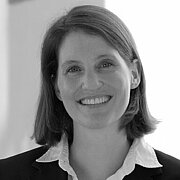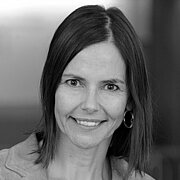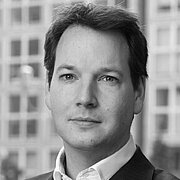The second instalment of the Dr. Michael Endres Prize lecture series
Social enterprises are organisations that pursue a social mission through the use of market mechanisms. The specific challenges implied in pursuing multiple goals simultaneously and being accountable to multiple stakeholders require us to go beyond readymade tools of corporate governance. We revisit evidence on how social enterprises govern, exchange perspectives on “good governance”, and discuss implications for policy and decisions makers.
Introductory statements:

Karin Kreutzer is Professor of Social Business at EBS Business School. She holds a doctoral degree from University of St.Gallen, a Masters degree in International Business Studies from University of Passau, and a Masters degree in Management of Nonprofit Organisations from Bocconi University. She worked for international NGOs in Germany and Italy and spent time as a Visiting Research Scholar at ESADE Business School in Barcelona. Karin Kreutzer has done research on organisational identity in hybrid organisations, nonprofit governance, and professionalisation. She has published in various international journals.

Johanna Mair is Professor for Organization, Strategy and Leadership at the Hertie School. Her research focuses on how novel organisational and institutional arrangements generate economic and social development. Mair is also the Distinguished Fellow at the Stanford Center on Philanthropy and Civil Society and Academic Editor of the Stanford Social Innovation Review. She is a Senior Research Fellow at Harvard Kennedy School and has held visiting positions at Harvard Business School and INSEAD. Her research is published in leading scholarly journals. She advises companies, governments and social impact investors on social innovation.
Discussion:

Florian Möslein is Professor for Private Law and German and European Business Law at the Philipps-University Marburg. His current research focuses on how corporate and capital markets law can foster sustainability and innovation. He has held academic positions at Humboldt-University Berlin, the University of Bremen, and the University of St. Gallen, and visiting positions at Stanford Law School, the University of Berkeley, the Universities of Sydney and Melbourne, and the European University Institute in Florence. He holds a degree in business administration, an LL.M. in international business law from the University of London, and a "licence en droit" at the University of Paris-Assas.

Felix Oldenburg is Secretary General of the Association of German Foundations in Berlin. After studying philosophy in Germany, UK, and the US, he co-founded an internet startup and started working for McKinsey & Company in London as a strategy consultant in 2000.From 2002, he established the New Governance division at IFOK GmbH. Felix Oldenburg initiated and facilitated employee and citizen participation programmes as well as corporate social responsibility projects. From 2009 to 2016, he served as Managing Director of Ashoka in Germany and Europe.While working at Ashoka, he started the Financing Agency for Social Entrepreneurship (FASE).
The inaugural event of our lecture series on corporate governance, inspired by the Hertie School’s new Dr. Michael Endres Prize, took place at the Hertie School on 26 October. Please have a look here to find out more about the event and prize.

